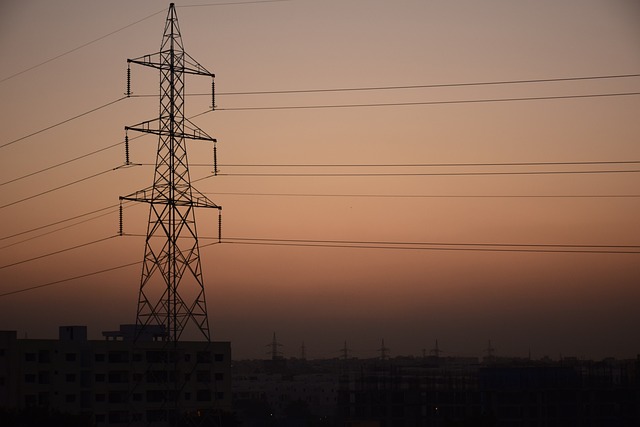Kratom, derived from Mitragyna speciosa, is a natural herb used by athletes for energy and pain relief but raises questions about its impact on sleep, specifically if it causes insomnia. Contrary to belief, many users report improved sleep quality, as kratom's alkaloids interact with opioid receptors promoting relaxation. Dosage, strain, and individual tolerance play significant roles in the varying effects on sleep. Athletes considering kratom supplementation should start with low doses and monitor their sleep patterns to balance performance enhancement and quality rest.
“Uncover the intriguing world of sports nutrition with a unique twist—Kratom. This ancient herb has gained attention for its potential benefits in energy enhancement and recovery among athletes. However, its impact on sleep remains a topic of interest, especially considering the common concern that kratom may cause insomnia.
Our article explores these aspects in depth, delving into how Kratom influences rest and athletic performance, offering insights to help athletes make informed choices.”
- Understanding Kratom and Its Effects on Sleep: Unraveling the Connection
- The Role of Sports Nutrition in Energy and Recovery: Exploring Kratom's Potential
- Balancing Act: Examining the Impact of Kratom on Sleep and Athletic Performance
Understanding Kratom and Its Effects on Sleep: Unraveling the Connection

Kratom, derived from the tropical plant Mitragyna speciosa, has gained attention in the sports nutrition realm for its potential performance-enhancing properties. However, one aspect often overlooked is its impact on sleep patterns. Contrary to popular belief, kratom is not inherently linked to causing insomnia. In fact, many users report improved sleep quality and duration after incorporating it into their routines. The plant contains various alkaloids, including mitragynine and 7-hydroxymitragynine, which interact with opioid receptors in the body, potentially promoting relaxation and sleep without the side effects associated with prescription sleep aids.
The relationship between kratom and sleep is complex, influenced by factors such as dosage, strain, and individual tolerance. While some individuals may experience vivid dreams or insomnia at higher doses, others find it enhances their rest. Understanding these nuances is essential for athletes considering kratom supplementation. It’s crucial to start with lower doses and monitor sleep patterns, ensuring a balanced approach that supports both athletic performance and quality slumber.
The Role of Sports Nutrition in Energy and Recovery: Exploring Kratom's Potential

Sports nutrition plays a pivotal role in optimizing performance and aiding recovery for athletes. One key area it focuses on is energy levels, ensuring competitors have sustained fuel throughout their rigorous training regimens and competitions. Proper nutrition can also significantly influence post-exercise recovery, reducing muscle soreness and accelerating the restoration of homeostasis.
Kratom, a natural herb with various compounds, has gained attention in this domain due to its potential effects on energy and recovery. While it is often known for its mild stimulant properties, providing a boost in focus and alertness, kratom may also offer benefits for active individuals. However, it’s essential to note that the relationship between kratom and sleep is complex; some users report improved sleep patterns, while others may experience insomnia. Given the individual variations in kratom’s effects, understanding its potential impact on energy and recovery in athletes requires further research.
Balancing Act: Examining the Impact of Kratom on Sleep and Athletic Performance

Kratom, a natural herb known for its diverse effects on the body, has gained attention in the sports nutrition community. While many athletes explore its potential benefits, such as pain relief and energy enhancement, an often-overlooked aspect is its impact on sleep and athletic performance. The balance between these two is crucial for optimal health and peak physical condition.
Research suggests that kratom can disrupt sleep patterns due to its effects on the body’s opiate receptors. This may lead to issues like insomnia, especially when consumed close to bedtime. For athletes, this can be a significant concern as quality sleep is essential for muscle recovery, cognitive function, and maintaining peak performance. It’s important for sports nutritionists and athletes alike to consider how kratom might influence their sleep routines and make informed decisions regarding its use, particularly in conjunction with intense training regimens.
While kratom has shown potential benefits for sports nutrition, particularly in energy enhancement and recovery, it’s crucial to approach its use with caution. The balance between its stimulatory effects and potential disruption to sleep patterns, as evidenced by concerns over does kratom cause insomnia, necessitates a thoughtful consideration. Further research is required to fully understand its impact on athletic performance and sleep quality. Until then, athletes should prioritize a balanced diet, adequate rest, and evidence-based supplements to optimize their training and recovery without compromising sleep integrity.














